Cygnus Law has made submissions on the FMA’s June 2017 proposal to use its exemption power to permit true “roboadvice” to be provided to consumers in New Zealand. I’m highly supportive of an exemption and I commend the FMA for taking the initiative to propose it. The roboadvice exemption is important, including because:
- A new law permitting such roboadvice won’t be in force for another one to two years.
- It should help to close the “advice gap” that currently exists.
- There’s a lot of interest from businesses in New Zealand in providing roboadvice.
- Other countries, including Australia, Singapore, the United States and the UK, already permit full roboadvice and have developing roboadvice sectors – NZ risks being dominated by off-shore roboadvice service providers if we don’t soon provide space for a domestic sector to develop.
I noted after the proposal was published that it has some attributes of a “regulatory sandbox”. A regulatory sandbox supports innovative businesses by allowing them to provide financial products and services without having to meet all usual regulatory requirements, with allied restrictions to protect their customers. While I support the implementation of a formal regulatory sandbox by the FMA my preferred option is that businesses wanting to use the exemption obtain “QFE” status.
FMA’s Roboadvice Proposal
If granted the FMA’s proposed exemption will allow financial service businesses to provide personalised financial advice on a limited range of financial products, such as shares and KiwiSaver schemes, subject to low value caps. There will be very little regulatory oversight of the new services, including no prior checks on the providers except in relation to “good character”. I consider that the limitations and caps in the proposal would not fully mitigate the risks presented by the proposed “light touch” approach and would tend to strongly favour services provided by product providers.
Cygnus Law’s Preferred Option
I think that any business wanting to make use of the roboadvice exemption should be required to obtain, as the key condition, “qualifying financial entity” (QFE) status (or should update an existing status to meet roboadvice service requirements). A QFE is a business that has obtained a licence by meeting the requirements set out in the QFE Adviser Business Statement Guide. That guide could be updated to include additional requirements for a business providing a roboadvice service (such as requiring the business to show how it will ensure its algorithms provide compliant advice). Under that model there would be no mandatory service limits or value caps. The requirement to obtain (or update) QFE status has a number of benefits:
- The QFE status already exists and is used to licence financial advice businesses, so it should not require too much effort to update the QFE regime to support roboadvice.
- It will give FMA and consumers greater confidence in the quality of roboadvice services provided pursuant to the exemption (so helping to meet the purposes of the Financial Advisers Act).
- It will allow service limits and value caps to be assessed on a case-by-case basis by reference to the “adviser business statement” prepared as part of the licence application.
- It is consistent with the existing financial markets regulatory framework, which requires businesses to obtain a licence before providing most types of financial services to consumers.
- It is consistent with the requirement in the draft legislation that all roboadvice service providers obtain a financial advice firm licence, so allowing the providers to more easily transition to the new regime, once in place.
- FMA recovers the cost of the licensing via the QFE application and variation fees.
Regulatory Sandbox
Regulatory sandboxes have been implemented in other countries (including in Australia, Singapore and the UK) to support the development of new and innovative financial services businesses. However, the FMA’s proposal lacks key controls and support mechanisms that mitigate the risks arising when a regulatory sandbox is implemented. I support the development of a regulatory sandbox in NZ but only for start-up companies and only after a regulatory sandbox policy has been adopted by the FMA. I don’t consider that a regulatory sandbox approach is the best way to facilitate provision of personalised roboadvice services generally in New Zealand pending implementation of the new law. As it is, the sandbox approach reflected in the proposal lacks a number of key additional attributes of sandbox regimes outside New Zealand. In particular, the Australian regime (as set out in ASIC’s Regulation Guide 257 Testing fintech products and services without holding an AFS or credit licence) has a number of additional attributes that mitigate the risks arising from the sandbox approach:
- It limits who can use the sandbox, for example existing licence holders cannot use it (this restriction does not apply in all countries that have a formal sandbox).
- ASIC assesses all applicants for the sandbox.
- It restricts the number of clients a sandbox participant can have to 100 retail clients and imposes a 12 month time limit (either of which may be extended by ASIC in exceptional circumstances).
- ASIC has a formal “Innovation Hub” that co-ordinates the sandbox process and helps to support the businesses making use of the sandbox and to apply for a licence.




